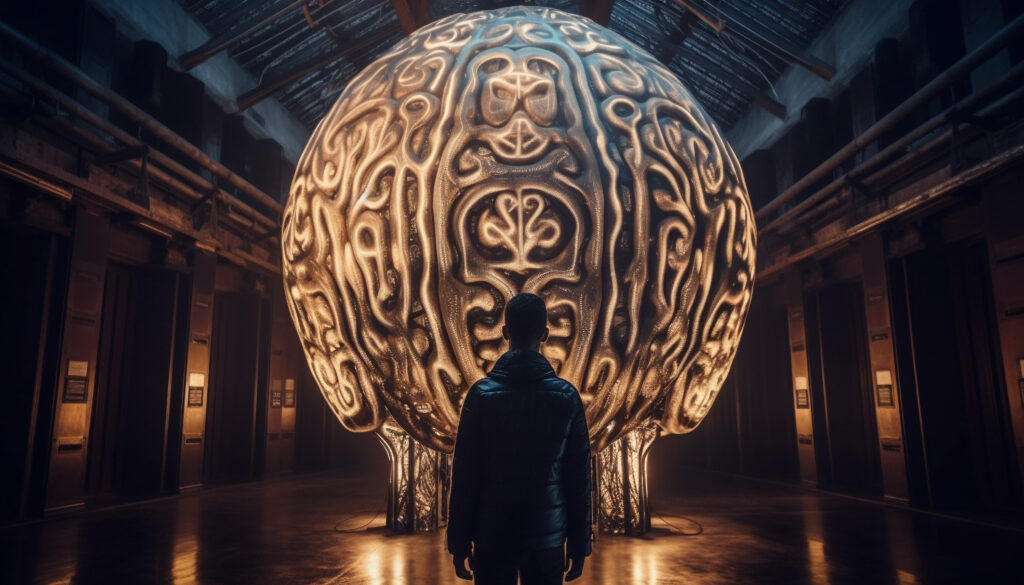INTRODUCTION:
Conspiracy theories have always been a prominent feature of human culture, from the belief in secret societies controlling world events to suspicions about government cover-ups. While some may dismiss conspiracy theories as irrational or paranoid, they continue to captivate the minds of individuals across the globe. Understanding the psychology behind these beliefs is essential for comprehending why people are drawn to them and how they shape our social landscape.
What Are Conspiracy Theories?
Conspiracy theories are narratives that propose secretive and malevolent plots by powerful groups or individuals to manipulate events or circumstances. These theories often involve distrust of authority figures, skepticism of official explanations, and a belief in hidden agendas. They can range from relatively innocuous speculations to elaborate and far-fetched explanations for major historical events.

The Appeal of Conspiracy Theories
- Sense of Control: Conspiracy theories offer a sense of control in chaotic and unpredictable environments. Believing in a hidden order behind seemingly random events can provide comfort and reassurance.
- Group Identity: Embracing a conspiracy theory can foster a sense of belonging within a community of like-minded individuals. It creates an “us versus them” mentality, reinforcing group cohesion.
- Skepticism of Authority: Many conspiracy theories stem from a fundamental distrust of authority figures and institutions. They serve as a form of resistance against perceived oppression or manipulation by those in power.
Psychological Factors at Play
- Cognitive Biases: Confirmation bias, the tendency to interpret information in a way that confirms one’s preexisting beliefs, plays a significant role in reinforcing conspiracy theories. Additionally, the illusion of understanding and hindsight bias can make even the most outlandish theories seem plausible to believers.
- Need for Meaning: Humans have an innate need to make sense of the world around them. Conspiracy theories offer explanations for complex events that may otherwise seem inexplicable, satisfying this psychological need for meaning and coherence.
- Fear and Uncertainty: Conspiracy theories often arise during times of social or political upheaval when people feel uncertain about the future. Believing in a conspiracy can provide a sense of clarity and direction in tumultuous times.
The Spread of Conspiracy Theories in the Digital Age
The internet and social media have revolutionized the spread of conspiracy theories, allowing them to reach a global audience with unprecedented speed and reach. Platforms like YouTube, Facebook, and Twitter have become breeding grounds for conspiracy theories, where like-minded individuals can easily find and share content that reinforces their beliefs.
Mitigating the Influence of Conspiracy Theories
- Promoting Critical Thinking: Educating individuals on critical thinking skills can help them evaluate information critically and distinguish between credible sources and conspiracy theories.
- Addressing Root Causes: Addressing societal factors such as inequality, disenfranchisement, and mistrust of authority can help mitigate the spread of conspiracy theories by addressing the underlying issues that fuel them.
- Fostering Dialogue: Engaging in open and respectful dialogue with individuals who embrace conspiracy theories can help bridge the gap and foster understanding. It’s essential to listen to their concerns and address them empathetically.
Conclusion
Understanding the psychology behind conspiracy theories is crucial for addressing their prevalence in society. By recognizing the underlying psychological factors that contribute to belief in conspiracy theories, we can work towards promoting critical thinking, addressing root causes, and fostering dialogue to mitigate their influence on individuals and society as a whole. Ultimately, a better understanding of conspiracy theories can lead to a more informed and resilient society capable of navigating the complexities of the modern world.


